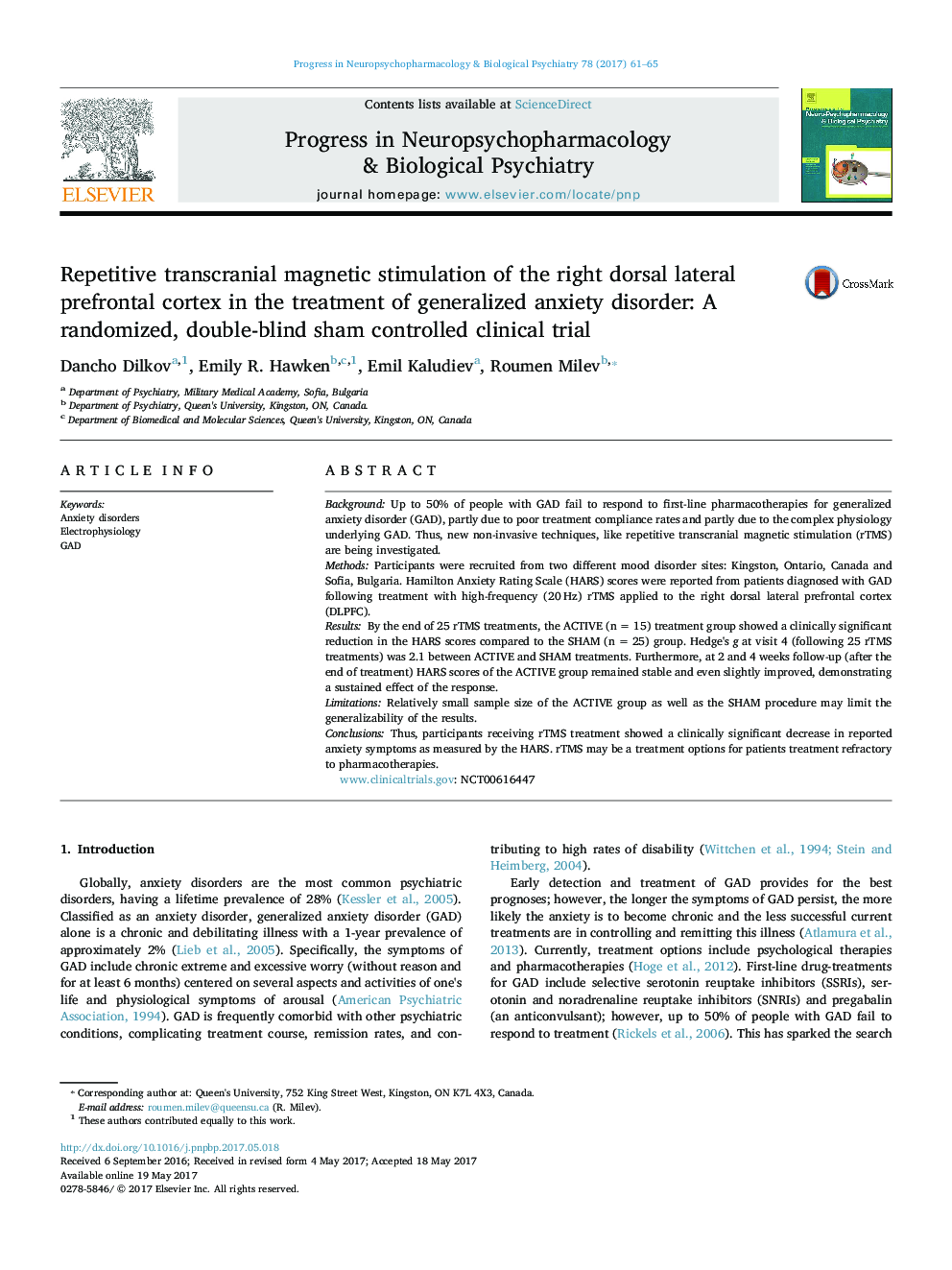| کد مقاله | کد نشریه | سال انتشار | مقاله انگلیسی | نسخه تمام متن |
|---|---|---|---|---|
| 5558021 | 1561016 | 2017 | 5 صفحه PDF | دانلود رایگان |
- We investigated rTMS in generalized anxiety disorder (GAD) from two clinical sites.
- Following 25 rTMS treatments, Hamilton Anxiety Rating Scale (HARS) scores showed significant clinical improved.
- HARS scores remained significantly improved at the 4-week follow-up.
BackgroundUp to 50% of people with GAD fail to respond to first-line pharmacotherapies for generalized anxiety disorder (GAD), partly due to poor treatment compliance rates and partly due to the complex physiology underlying GAD. Thus, new non-invasive techniques, like repetitive transcranial magnetic stimulation (rTMS) are being investigated.MethodsParticipants were recruited from two different mood disorder sites: Kingston, Ontario, Canada and Sofia, Bulgaria. Hamilton Anxiety Rating Scale (HARS) scores were reported from patients diagnosed with GAD following treatment with high-frequency (20 Hz) rTMS applied to the right dorsal lateral prefrontal cortex (DLPFC).ResultsBy the end of 25 rTMS treatments, the ACTIVE (n = 15) treatment group showed a clinically significant reduction in the HARS scores compared to the SHAM (n = 25) group. Hedge's g at visit 4 (following 25 rTMS treatments) was 2.1 between ACTIVE and SHAM treatments. Furthermore, at 2 and 4 weeks follow-up (after the end of treatment) HARS scores of the ACTIVE group remained stable and even slightly improved, demonstrating a sustained effect of the response.LimitationsRelatively small sample size of the ACTIVE group as well as the SHAM procedure may limit the generalizability of the results.ConclusionsThus, participants receiving rTMS treatment showed a clinically significant decrease in reported anxiety symptoms as measured by the HARS. rTMS may be a treatment options for patients treatment refractory to pharmacotherapies.www.clinicaltrials.gov: NCT00616447
Journal: Progress in Neuro-Psychopharmacology and Biological Psychiatry - Volume 78, 1 August 2017, Pages 61-65
